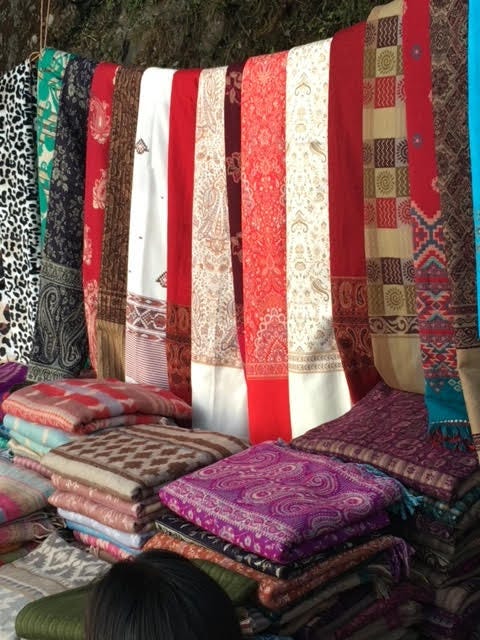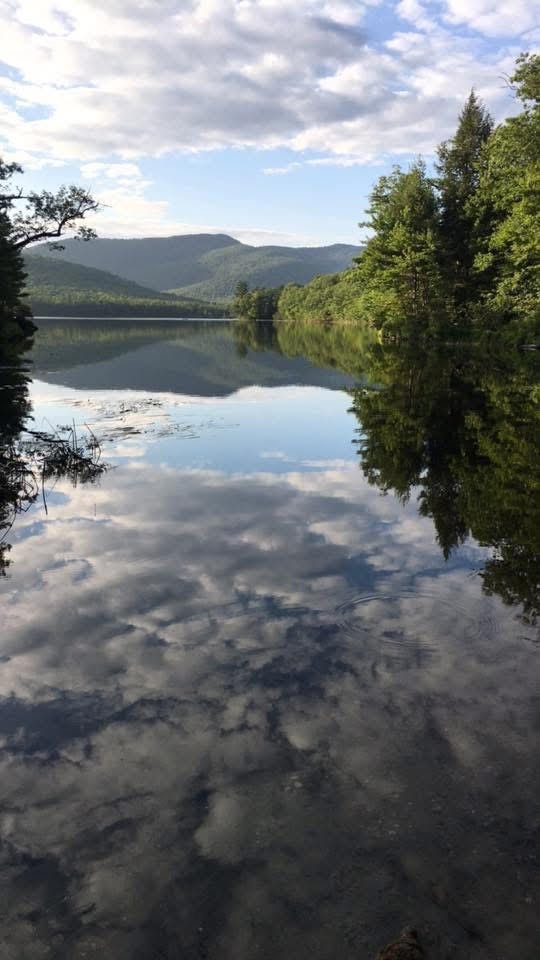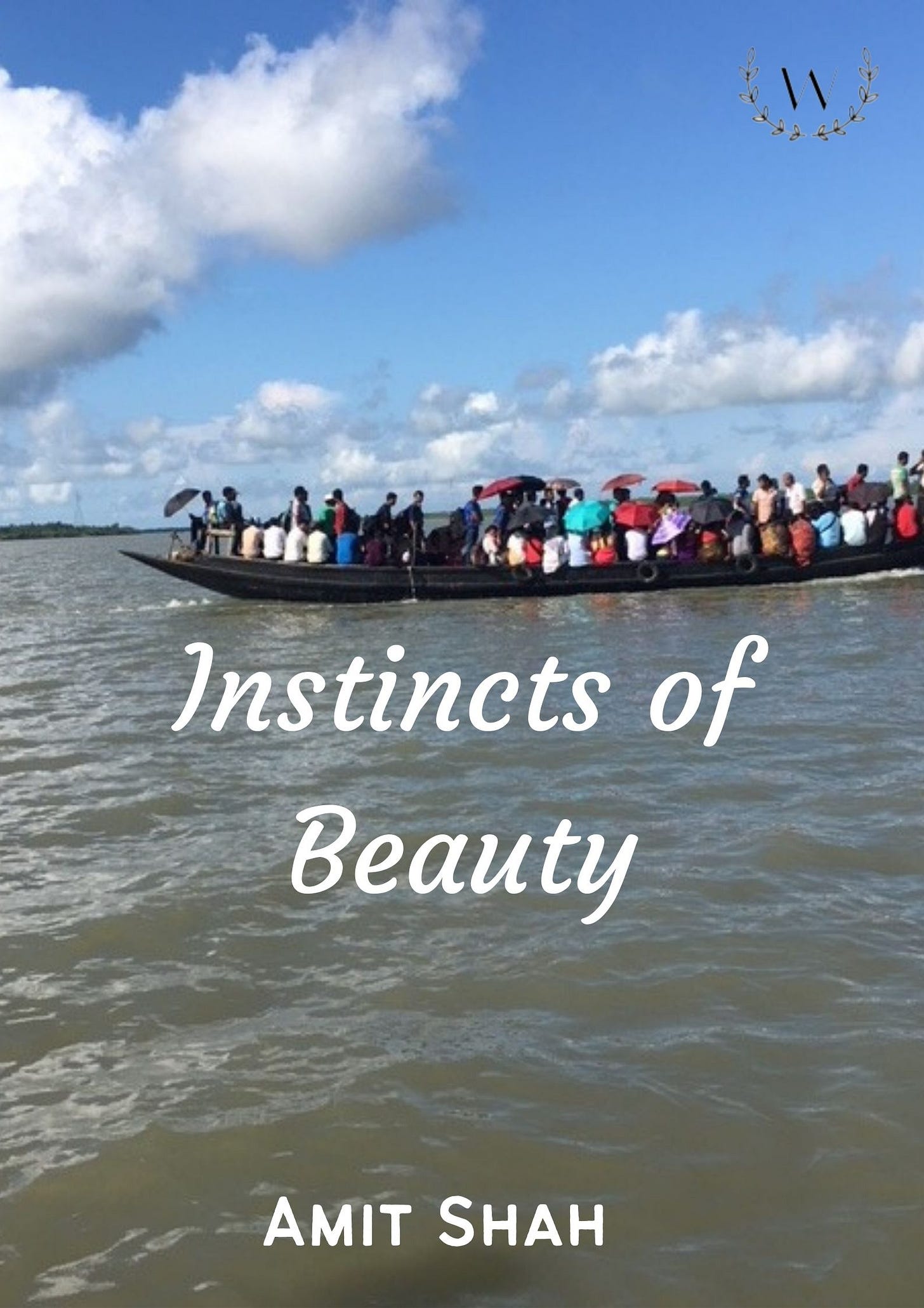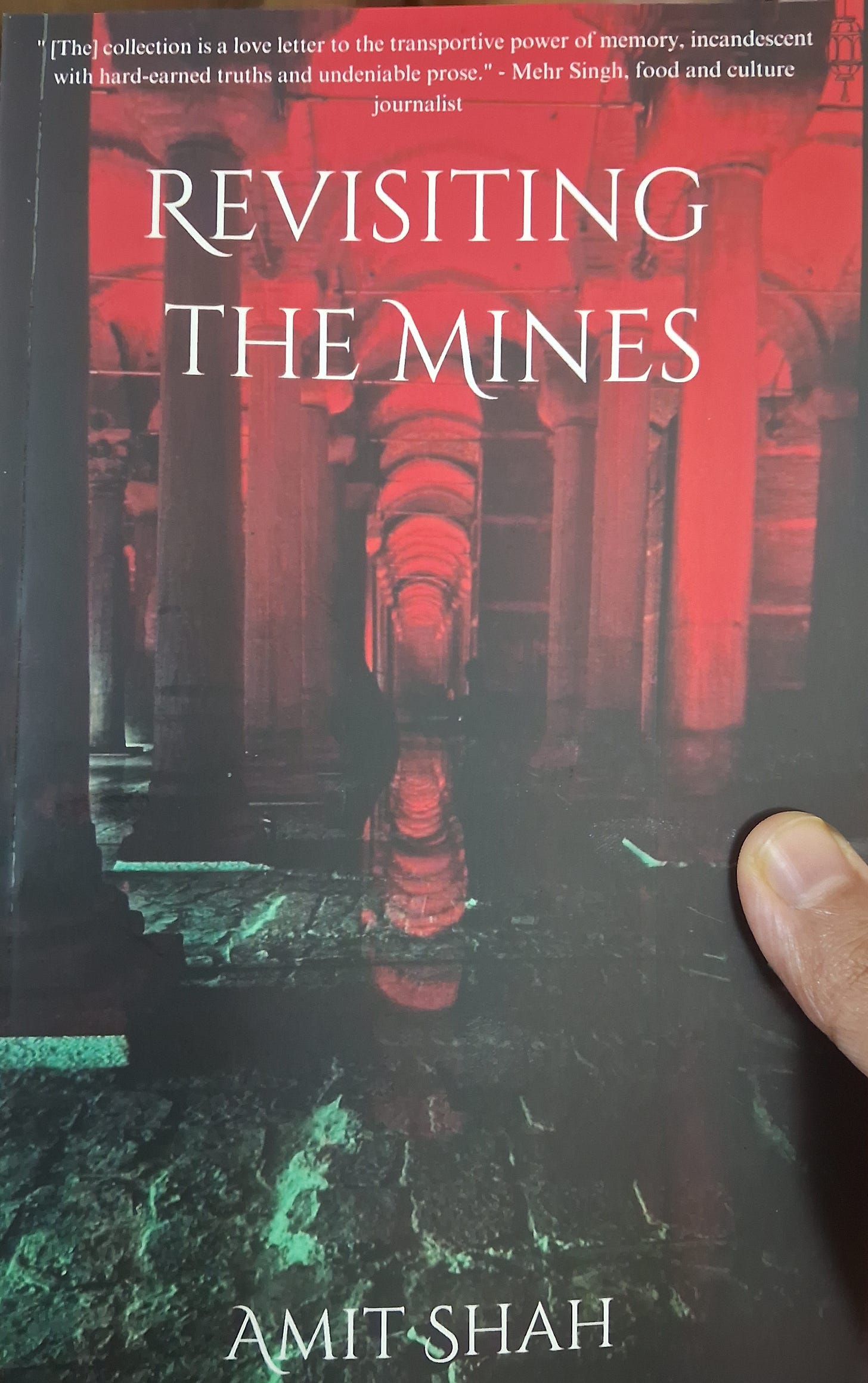A Fragile Persistence
“Our ignorance allowed us to live, as you are in the mountains, and your rope is frayed and about to break, but you don't know it and feel safe.” (~ Primo Levi, "The Periodic Table")
The other day I read five selections from Revisiting the Mines to a group of fifteen people, who graciously and kindly were attentive and supportive. The following selection was on my reading list but I thought the audience had enough, so I didn’t read it. But I WANT my writing read and heard. So here it is.
Also, I’m going to try one more new thing as I speed along the last lap of my life. I’m going to do a Zoom reading in mid-November 2025 from some of my newer pieces that I’m assembling for a third collection, which I hope to bring out next year. I’m hoping that the Zoom platform will allow people from anywhere to join for an hour.
_______________________________
NOTES OF A SUMMER
“Exhaust the little moment. Soon it dies. And be it gash or gold it will not come again in this identical guise.” (~Gwendolyn Brooks, “Annie Allen,” 1949)
Summer in India of the 1950s and 1960s. Mangoes. Mangoes. Mangoes and more mangoes.
At that time, we went to my parents’ house in Hazaribagh—in the mineral-rich low hills of modern-day Jharkhand (land of forests), about 250 miles northwest of Kolkata, where the nearest railhead at that time was 60 miles away—almost every year during the summer. The property had about four to five acres of land, a large portion of which had mango trees. During the summer, the tree branches would stoop in supplication under their burden, pleading for the ripened fruit to be plucked.
India is a land of extremes. So much of it is staggeringly incomprehensible. All the cliches are true. The beauty and the squalor. The creativity and the thuggery. How can a culture that spawned the inclusivity of Hinduism also embrace the viciousness of casteism? How could the land of the Buddha be drenched routinely in blood? How could a country where 10% of the people control over 75% percent of the wealth be the birthplace of one of the greatest philosophers of the modern world, Swami Vivekananda? This is the man who said:
“So long as the millions live in hunger and ignorance, I hold every person a traitor who, having been educated at their expense, pays not the least heed to them!”
In today’s India, this might draw a First Information Report (FIR) from the modern-day religious saber-rattlers.
Mangoes are no different in India, varieties in excess and extreme. There are…are you ready?...approximately 1,500 varieties according to government sources. But we didn’t have 1,500 varieties hanging from the branches at Hazaribagh. We had, I think, a combination of six varieties that grow in Bengal and Bihar, part of which is now Jharkhand: Gulab Khas, Himsagar, Kisan Bhog, Lakshman Bhog, Langra, and Fazli.
We ate mangoes morning, noon, and night and then we’d load two cars full—I mean FULL—with jute sacks bloated with these delicacies and transport them to Kolkata for the children at the blind school. Sometimes the lead car, a 1950 Chevy station wagon “Woody” with wooden exterior paneling and styling, would be so overstuffed that the rear fender would spark on the asphalt road as it bounced along. There’d be numerous flat tires and repairs and picnics by the roadside before we rolled into our courtyard probably twelve to fourteen hours later.
Summer, India, 1983. My sister went to India in June with her husband. I saw them off at Kennedy Airport in New York. The first AIDS cases were making national headlines. I remember talking about it as we waited for the flight to be called. In India, the summer flowers—mahua, karavira, white lily, pink hibiscus—were in bloom. When she landed at her final destination after a short flight from Kolkata to Ranchi, about 40–50 miles from Hazaribagh, she was told that our father had died that morning. He had planned to drive from Hazaribagh to Ranchi to pick them up but probably had a heart attack (his third) when he tried to get out of bed. He slid to the floor, resting on his knee, his hands on the bed, head bowed at the edge of the mattress. That’s where my mother found him. He was a meticulous man. He kept a blue pocket diary where he wrote things he had to do, how much money he had in his pockets each night, something he’d read. The last entry read “Pick up Pupu and Bill at Ranchi. Take water bottle.” I have the diary. I still look at the page sometimes.
Summer, India, 1989. It’s 3 a.m. in mid-June, and I’m pacing the deserted Bombay airport terminal. This is long before the city became Mumbai and long before the terminal adopted the glittering, brash, airport-anywhere-in-the-world look. Then, it was more like a clean bus station. I’m smoking one cigarette after another. Thank goodness, the tea and coffee stall is open. I get minuscule cups of coffee, Nescafe for sure. I’m waiting for the first flight at dawn to Calcutta, having flown in nonstop from New York about an hour earlier. I’d raced out of New York with a carry-on bag and a card in my pocket from my first wife, Lisa, who’d put a photo of my first-born, Arnav, for my mother in Calcutta. Ma hadn’t seen Arnav. He was seven months old.
Later that morning I land in Calcutta. Mesho, my youngest maternal aunt’s husband, wraps me in his arms as I exit immigration. He’s almost six-feet-four, a giant by Indian standards of his generation and as handsome as a movie star. I always thought he was a Gregory Peck doppelganger. He told me my mother had passed away in the early morning, probably as I was pacing the terminal in Bombay, destroying my lungs.
Summer, Maine, 2022. Pam leads a wildflower walk in western Maine. I go along. She has taught herself so much about wildflowers (most often ignored by people like me tromping along trails). I am someone who marvels at a particular type of obsession to understand bits of our natural and physical universe. Even if I lack understanding of the urge in its entirety, I am mesmerized at the effort. She’d trained as a classicist at some of the best institutions in the world for that area of study. It had limited cache in the commercial world but is sheer poetry in its aesthetics and learning about our past. She brings that same scholarship and joy and depth of discovery to wildflowers and the forest floor.
Before she started the walk, she introduced us to a quote. Of course, it applies to so much more than the forest floor.
“Many an object is not seen though it falls within the range of our visual ray, because it does not come within the range of our intellectual ray—i.e. we are not looking for it. So in the largest sense, we find only the world we look for.”
~Thoreau in “Thoreau’s Wildflowers”
(All photographs, including covers, courtesy of the author. All Rights Reserved.)
_______________________________________
Kindle Versions Available from Amazon
“In his mosaic of a memoir, Instincts of Beauty,
Amit Shah offers a tesserae of an extraordinary
life. The gemstones dazzle, set out as they are with
darker pieces from darker places. Seen as a whole,
Shah creates an unforgettable picture.”
(~Carol Jago, past president of the NCTE,
currently serves on the International
Literacy Association’s board of directors)






